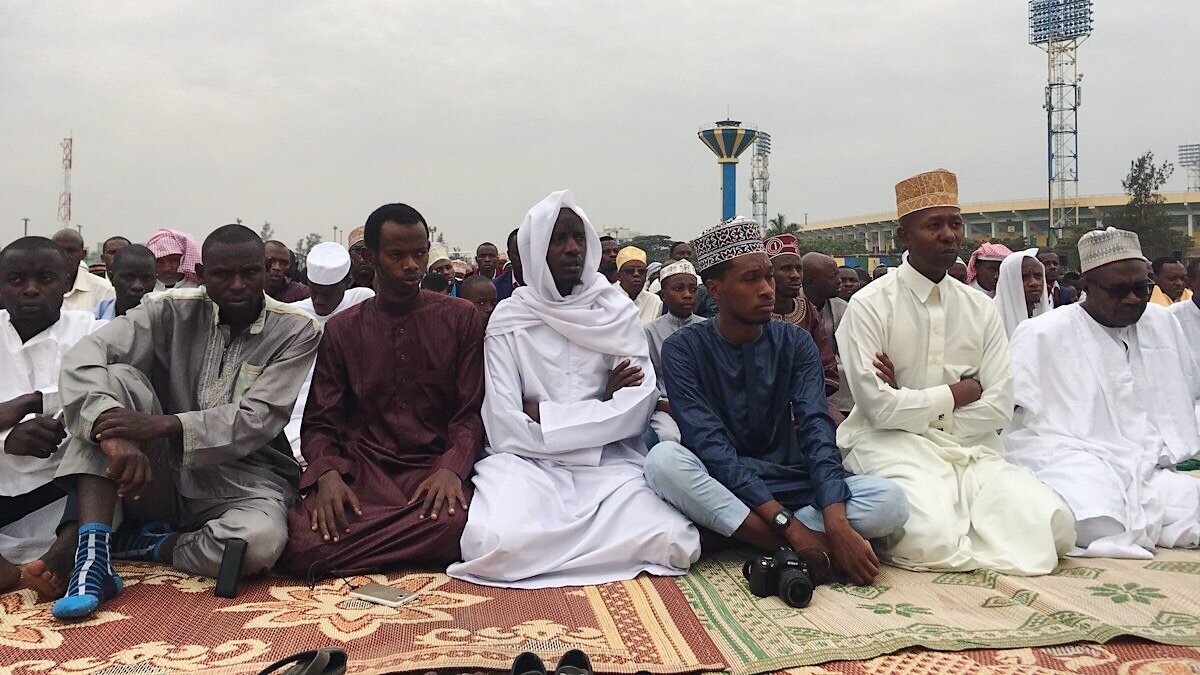Muinat Adeyemo takes a look at the role Muslims played in saving countless lives during the Rwandan genocide…
Pre-Genocide
Following the horrors of the 1994 genocide, stories began to emerge illustrating courageous acts of people risking their lives to protect the persecuted Tutsis and moderate Hutus. Perhaps the most famous was that of Paul Rusesabagina, whose accounts were fictionalised in the award-winning film, Hotel Rwanda. However, one group who emerged as unlikely heroes, were the Rwandan Muslims.
Islam came to Rwanda through multiple means. Arab traders, Askaris or “African Soldiers” who accompanied the Germans as cooks, interpreters and traders in the 1900s, and later South Asian merchants who married Rwandans, all contributed to the advent of Islam in the country. However despite this, the country’s colonial history meant that Christianity, particularly Catholicism, was deeply entrenched and Islam didn’t spread the way it had in many of the other East African nations.
The Belgians (who had Colonised Rwanda) were afraid of the influence of Islam due to the “political potential” of the Qur’an. They feared it could teach Black Rwandans to be subversive and instil a form of “Black pride” that would cause them to question colonial rule. This led to the political, social and economic marginalization of Muslim communities. The Askaris, for example, were called Swahili to differentiate between them and the Arab Muslims, confined to what was called the “Swahili Quarter”. They had little to no political representation, despite the presence of a party called the Democratic Islamic Party, which allowed non-Muslims to join, but had no seats in parliament). This meant they were largely inoculated from the long-standing animosity between the Hutu and Tutsi tribes and any hateful propaganda that was being spread along ethnic lines.
Imams and Islamic leaders were able to objectively gauge the political situation occurring with the increased violence against Tutsis. The Rwandan Muslim Community (RMC) led by the then Mufti of Rwanda, Sheikh Ahmad Mugwiza, signed a resolution denouncing the violence against Tutsis in 1992. They also disseminated pastoral packages around the Mosques in the country, preaching messages of tolerance and peace to their congregations. Imams reminded communities that they were Muslims first, and so their identities should primarily be based on their religion and not their ethnicity.
During the Genocide
Although the genocide began in April 1994 when the plane carrying Rwandan President Juvenal Habyarimana was shot down, it was foreshadowed by bouts of anti Tutsi violence flaring up many years prior. Due to the isolation of the community, as well as the foresight of Muslim leaders, Muslims were able to adopt a position of passive resistance when the conflict began by refusing to participate in the killings, and offering protection to refugees arriving to the Muslim quarter.
There are many stories of Muslims risking their lives to save those being persecuted. One such story was that of Jean Pierre Sagahutu, who was hidden in a septic tank behind his friend, Idrissa’s house for a month. Idrissa would bring him food each night and was the only barrier between life and death for Jean Pierre. His conduct was typical of most Muslims in Rwanda during the genocide and this experience later inspired Jean Pierre to convert from Roman Catholicism to Islam, saying “I know people in America think Muslims are terrorists, but for Rwandans they were our freedom fighters during the genocide.”
There were also accounts of the Muslim community as a whole, protecting those being persecuted in spite of it meaning certain death. One such story was in Mabare, a lakeside village with a small Muslim population, noted especially for their heroism. Although the village was untouched by the violence during the first days of the genocide, bodies soon started floating in Lake Mugesera. Some were dead; others were alive but badly injured and riddled with machete wounds. The Imam of the village’s only mosque, Rashid Bagabo, began coordinating efforts to remove the bodies, and administer aid to save those that were still alive. Meanwhile, the villagers were fleeing their homes and seeking refuge in the mosque as stories of church members aiding the Interahamwe (Hutu Militiamen) began to spread. Refugees also began arriving from neighbouring villages, as they learned that the mosque was providing sanctuary.
Imam Bagabo directed the men of his congregation to setup roadblocks on the two main roads leading to the village, in order to impede the Interahamwe’s access, armed only with rocks, stones and a few spears against the Interahamwe’s guns and grenades. Unfortunately, they were soon overpowered and the Interahamwe were able to gain access of the village and soon attacked the mosque with grenades, killing 282 of the 300 that had sought refuge. This death toll included the deputy Imam, who Imam Bagabo had left in charge whilst he took some elderly residents to safety. Although it was a tragic ending, the heroism displayed by the Muslim community typified the Muslims’ stance during the genocide.
Post-Genocide
The genocide ended when the RPF (Rwanda Patriotic Front) were able to take control of the capital (Kigali) from the Hutu led Interahamwe, with the death toll estimates ranging from 500,000- 1,000,000 during the 100 days of the genocide.
The role that religious people played during the genocide came into focus and Muslims, a marginalised community that only comprised less than 2% of the population (1990 Census), emerged as heroes. There were increased conversions from Christianity to Islam, with people converting for a myriad of reasons. Some Tutsis converted due to the positive experiences they had of Muslims saving their lives, others because they knew they would be safe in the Muslim community. There were also some who participated in the genocide and converted in hopes of atonement from their past. Estimates for the Muslim population in Rwanda range from 4-14%, with 500 mosques being built to accommodate the increasing number of Muslims.
Muslims in Rwanda are now afforded the same rights as Christians for the first time in their history. Eid-al Fitr has been recognised as one of Rwanda’s four religious holidays, while Muslims have been at the forefront of efforts to heal ethnic tensions.
Author: Muinat Adeyemo


